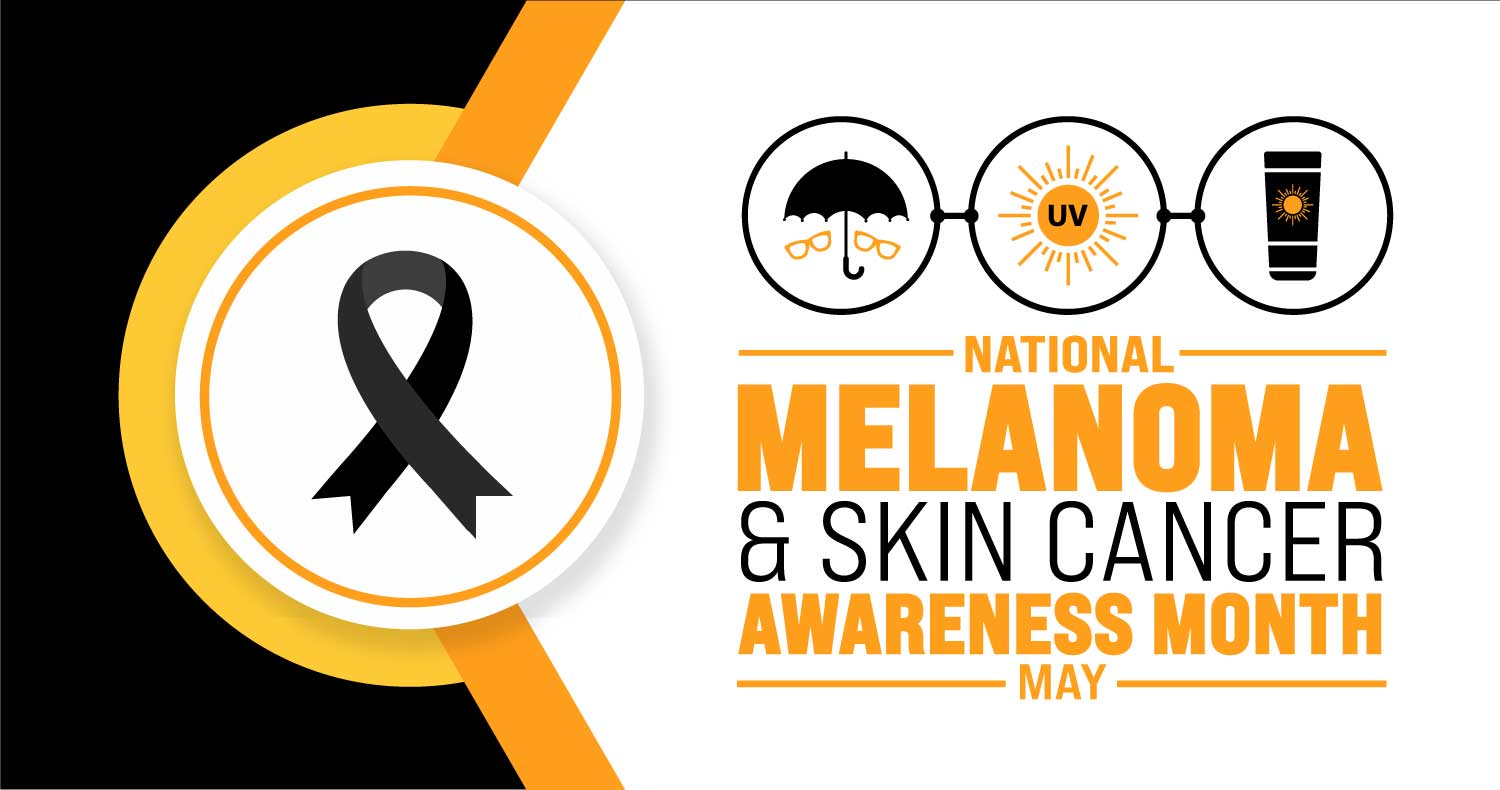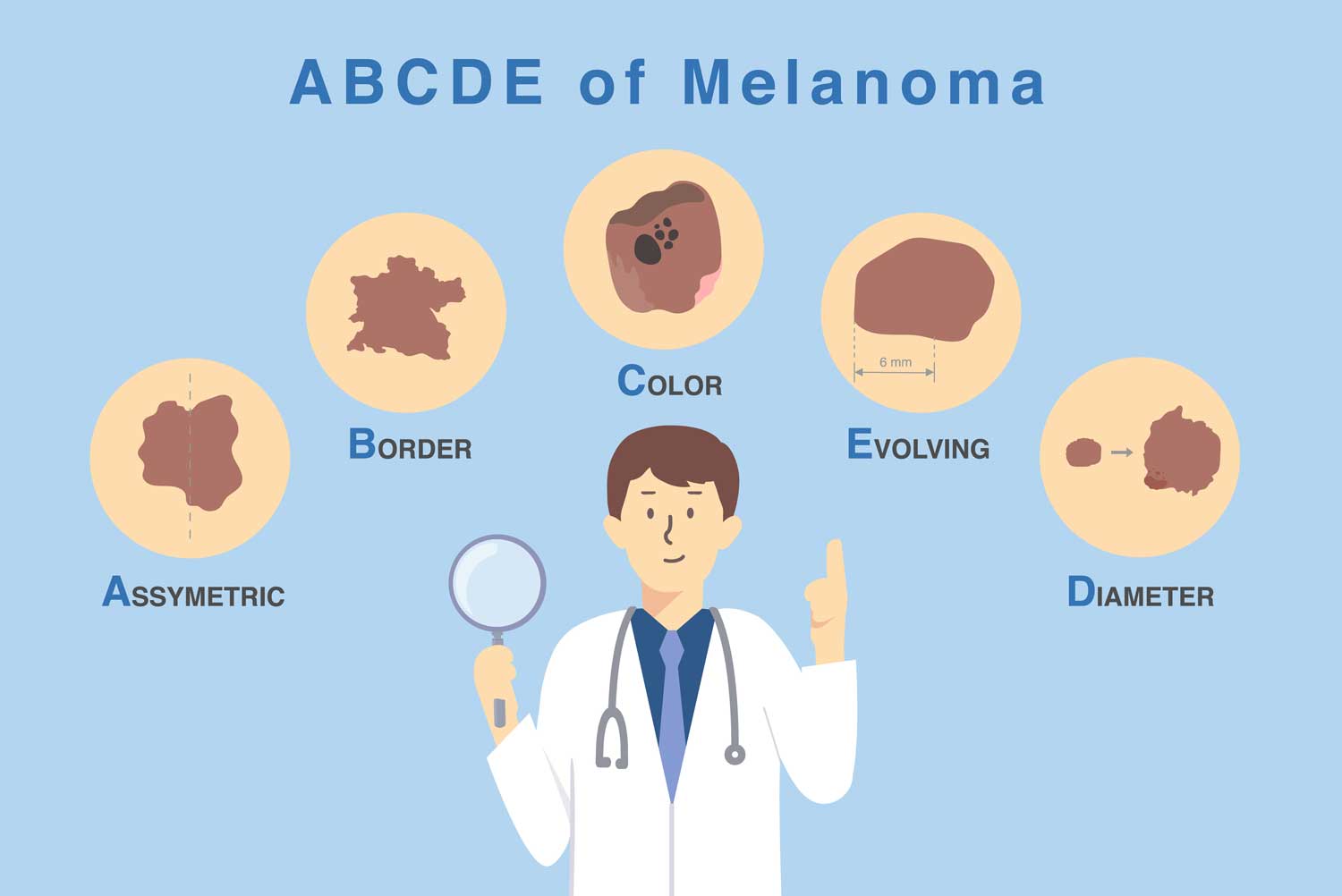
As the weather warms up and we spend more time outdoors, it’s the perfect opportunity to talk about a crucial topic – skin cancer prevention. May is Skin Cancer Awareness Month, an annual campaign to raise awareness about the importance of protecting your skin from the sun’s harmful UV rays. At The Dermatology Specialists, we’re committed to educating our patients and the public about skin cancer risks, prevention strategies, and the life-saving benefits of early detection.
Skin cancer is the most common cancer in the United States, with over 5 million cases diagnosed each year. In fact, more people are diagnosed with skin cancer each year in the U.S. than all other cancers combined. 1 in 5 Americans will develop skin cancer by age 70.
While these statistics are alarming, there’s also good news – skin cancer is highly preventable. Up to 90% of non-melanoma skin cancers and 85% of melanomas are associated with exposure to UV radiation from the sun. By taking simple precautions to protect your skin, you can drastically reduce your risk.
There are three main types of skin cancer:
If you notice a suspicious spot, don’t wait – schedule an appointment with a board-certified dermatologist in Queens, Manhattan, Brooklyn, Bronx, Long Island, Pennsylvania (Coming Soon) or Delaware at The Dermatology Specialists right away. Our team of experts, including renowned dermatologist Dr. Bobby Buka, provides comprehensive skin cancer screenings and treatment.

Melanoma can develop anywhere on the body, even in areas that aren’t typically exposed to the sun. Knowing how to identify potential warning signs is crucial for early detection. Use the ABCDE rule as a guide:
– Asymmetry: One half of the spot looks different from the other half
– Border: The edges are irregular, scalloped, or poorly defined
– Color: The color is not the same all over, with shades of brown, black, pink, red, white, or blue
– Diameter: The spot is larger than 6 millimeters (about the size of a pencil eraser)
– Evolving: The mole is changing in size, shape, or color
If you notice any of these warning signs, make an appointment with a board-certified dermatologist specialist at The Derm Specialists right away. When detected early, melanoma has a 99% 5-year survival rate.
The best way to lower your skin cancer risk is to practice a comprehensive approach to sun protection:
– Seek shade: UV rays are strongest between 10am-4pm, so limit your direct exposure during these hours.
– Cover up: Wear protective clothing like long-sleeved shirts, pants, wide-brimmed hats and UV-blocking sunglasses.
– Use sunscreen: Apply a broad-spectrum, water-resistant sunscreen with an SPF of at least 30 to all exposed skin, such as DUNE SuncareTM The Bod Guard. Reapply every 2 hours or after swimming/sweating. Check out our guide to the best sunscreens recommended by dermatologists and read about Dr. Buka’s recommendations for sun care by skin type in Billboard Magazine.
– Avoid tanning beds: Indoor tanning devices can emit UV radiation in amounts 10-15 times higher than the sun at its peak intensity. Just one indoor tanning session can increase your risk of melanoma by 20%.
In addition to self-exams, it’s important to have your skin checked by a dermatologist specialist at least once a year. During a professional skin exam, your dermatologist will carefully inspect your skin from head-to-toe, looking for any suspicious spots. This is especially important if you have a history of sunburns, excessive sun exposure, or a family history of skin cancer.
A thorough skin exam typically takes about 10 minutes. If your dermatologist finds a suspicious spot, they may recommend a biopsy to determine if it’s cancerous. The earlier skin cancer is detected and treated, the better the outcome.
The Dermatology Specialists offer comprehensive skin cancer screenings at our across multiple locations, ensuring accessibility and convenience for our patients. Our board-certified dermatologists are experts in the early detection and treatment of skin cancer. Visit us at any of our 50 offices across Manhattan: Lower East Side, Union Square, Manhattan Valley, Hell’s Kitchen, Flatiron, Upper Harlem, Lower Harlem, Upper East Side, Kips Bay, South Street Seaport, Greenwich Village, Upper West Side; Queens:Richmond Hill, Elmhurst, Jamaica, Corona, Rockaway Park, Rego Park, Ridgewood, Bayside, Jackson Heights, Astoria, Long Island City: Brooklyn: Brooklyn College, Bay Ridge, Midwood, Bed-Stuy, Clinton Hill, Flatbush, Bensonhurst, South Slope, Cobble Hill, Greenpoint, Bushwick, Sunset Park, Downtown Brooklyn, Crown Heights, Williamsburg; Bronx: Parkchester, Fordham Heights, Marble Hill, Soundview, Mott Haven, Norwood, Highbridge, East Bronx; Long Island: Oceanside; Pennsylvania: Old City (Coming Soon) and Delaware: Downtown Wilmington, North Wilmington.
Each location is equipped with state-of-the-art facilities and staffed by highly trained professionals dedicated to providing the best in dermatological care.
This May, join The Derm Specs in raising awareness about skin cancer prevention and early detection. Earlier this month we hosted a free public skin cancer screening popup in partnership with La Roche Posay to help New Yorkers learn about sun safety and get checked for skin cancer. Check out our video on the experience and be sure to follow us on social media to learn about events like this in the future. In the meantime, here are a few ways you can get involved:
Together, we can save lives by shining a light on skin cancer awareness. Remember, if you spot anything new, changing or unusual on your skin, don’t wait – schedule an appointment with a board-certified dermatologist specialist at The Dermatology Specialists. Your skin will thank you!
To schedule your skin check at The Dermatology Specialists, call 212-555-1234 or book online at www.thedermspecs.com.
Skin Cancer Foundation. “Skin Cancer Facts & Statistics.” https://www.skincancer.org/skin-cancer-information/skin-cancer-facts/
American Academy of Dermatology. “Skin Cancer: Incidence Rates.” https://www.aad.org/media/stats-skin-cancer
Skin Cancer Foundation. “Skin Cancer Prevention.” https://www.skincancer.org/skin-cancer-prevention/
American Cancer Society. “What Are Basal and Squamous Cell Skin Cancers?” https://www.cancer.org/cancer/basal-and-squamous-cell-skin-cancer/about/what-is-basal-and-squamous-cell.html
American Cancer Society. “Key Statistics for Melanoma Skin Cancer.” https://www.cancer.org/cancer/melanoma-skin-cancer/about/key-statistics.html
American Academy of Dermatology. “The ABCDEs of Skin Cancer.” https://www.aad.org/public/diseases/skin-cancer/find/at-risk/abcdes
Skin Cancer Foundation. “Early Detection.” https://www.skincancer.org/early-detection/
Skin Cancer Foundation. “Skin Cancer Prevention” https://www.skincancer.org/skin-cancer-prevention/prevention-guidelines/
Skin Cancer Foundation. “Dangers of Indoor Tanning.” https://www.skincancer.org/risk-factors/tanning/
American Academy of Dermatology. “Indoor Tanning.” https://www.aad.org/media/stats-indoor-tanning